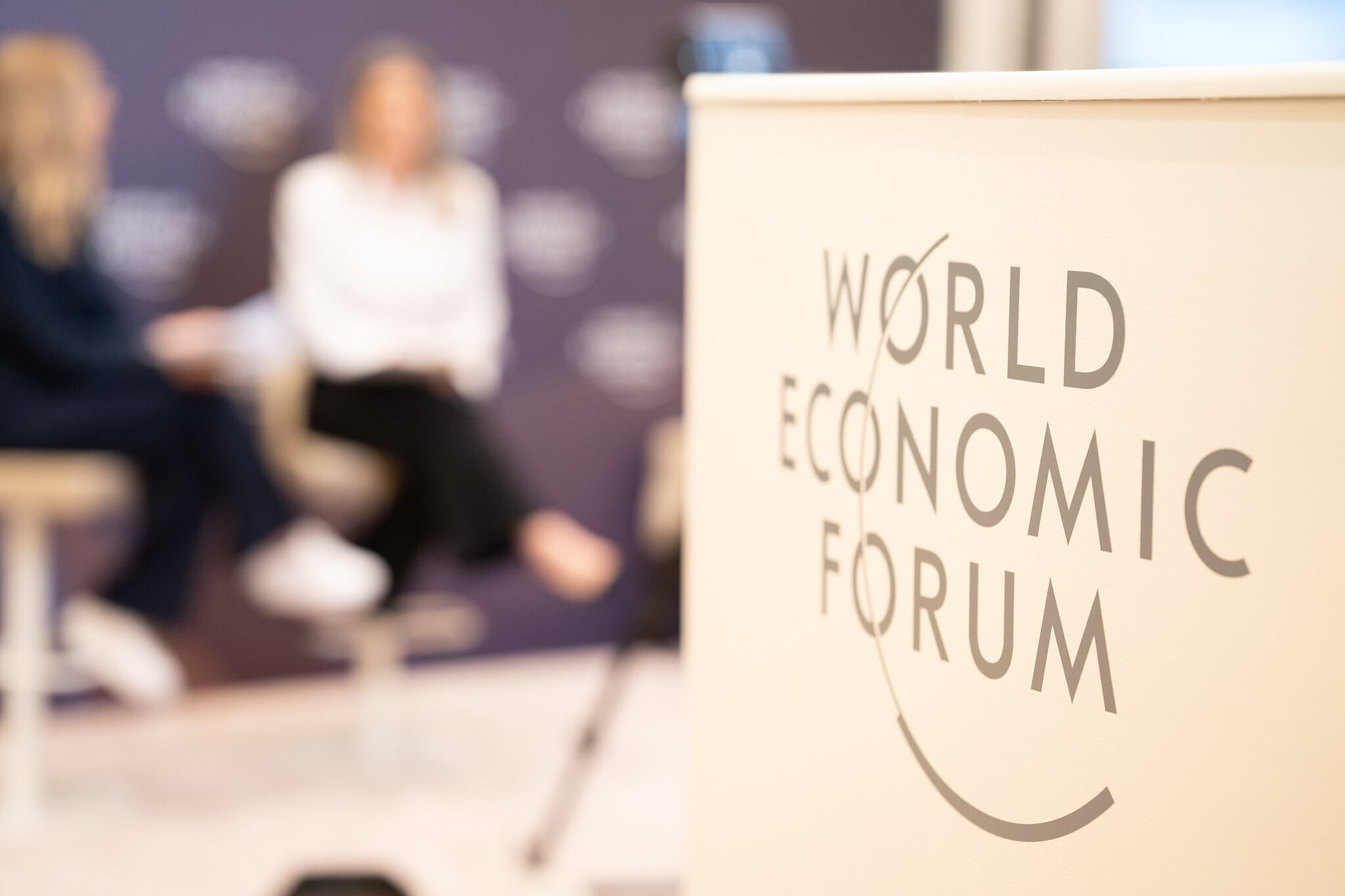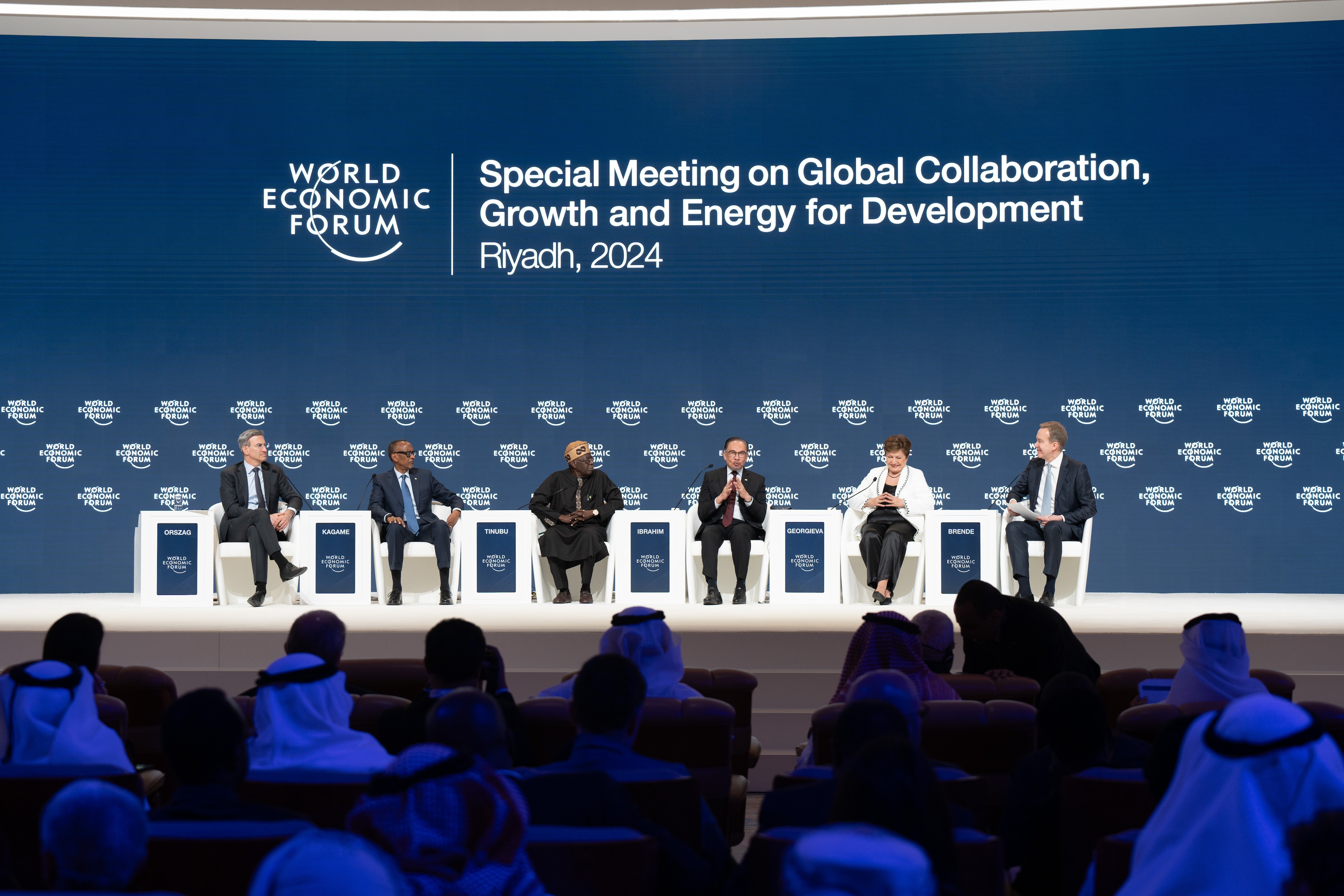Here are 5 lessons from Ghana's fight against plastic pollution

Plastic pollution has a devastating impact on the environment. Image: REUTERS/Luis Echeverria

Get involved with our crowdsourced digital platform to deliver impact at scale
Stay up to date:
Plastics and the Environment
Listen to the article
- A high amount of plastic use, poor disposal practices and a lack of recycling infrastructure means plastic pollution is a major environmental problem with dire effects.
- The Ghana National Plastic Action Partnership is a platform for multi-stakeholder cooperation to reduce plastic pollution measurably.
- The national action roadmap approach can be a blueprint for other countries to adopt a multi-stakeholder approach to reducing plastic pollution.
- Multi-stakeholder roadmaps can serve as strategic guides towards national action plans for countries, helping them navigate the development of the capabilities required to fulfil their obligations under the Global Plastics Treaty.
The last two decades have characterized consistent and significant economic growth and political stability for Ghana, so it is not surprising that it is considered a successful democracy within the West African sub-region. With a population of over 29 million people, the country’s economic and political advancements have coincided with the tremendous increase in the production and consumption of plastic products, especially single-use plastics, used within municipalities.
Plastic pollution is a major environmental problem with dire effects on marine and terrestrial ecosystems.
Pollution in Ghana is caused mainly by a lack of plastic waste management infrastructure for collection, sorting and recycling. Insufficient financing and support mechanisms to attract scaled investment create barriers towards building and maintaining these facilities. Improper disposal of plastic waste by locals also contributes to the problem.
Tackling outgrowing plastic pollution
It is estimated that Ghana generates around 0.84 million tonnes of municipal plastic waste annually, increasing by 5.4% annually. Population is the first catalyst, with plastic waste growing 2.2% per annum alongside a 3.4% increase in per capita plastic consumption. Despite significant government, industry and civil society commitments to address their environmental impacts, plastic leakage into the country’s water bodies is projected to grow by 190% between 2020 and 2040, from approximately 78,000 tonnes per year to 228,000 tonnes per year.
That’s why, under the leadership of the Ministry of Environment, Science, Technology and Innovation, the Ghana National Plastic Action Partnership (NPAP) was established as the platform for multi-stakeholder cooperation.
To empower governments to measure, evaluate and address their national plastic pollution challenges in a structured, systemic way, GPAP developed a baseline and measuring tool deployed in multiple countries, including Ghana. The tool facilitates multi-stakeholder alignment and decision-making for forming evidence-based national plastic action partnerships and frameworks to tackle the forecasted leakage impacts.
As we’ve seen, the demand for national action plans on plastics is increasing with recent Global Plastics Treaty developments; countries must be prepared with the relevant capabilities and enabling environments – the NPAP’s multi-stakeholder platform fosters this.
Plastic pollution is a problem that needs to involve the entire value chain – producers, consumers, collectors, etc. That’s why policy alone cannot achieve the solution – it requires a concerted effort through multi-stakeholder inclusion.
What is the World Economic Forum’s Sustainable Development Impact summit?
Lessons for others
So, after three years of efforts in Ghana, here are some key takeaways for other countries looking to pursue a similar model:
- Alignment and coordination. Cooperation means stakeholders work together cohesively, efficiently allocate resources and collectively pursue a common strategy, thereby maximizing the impact of initiatives and policies.
- Action through partnerships. Offering an impartial and credible platform to achieve our goals. Positive change is evident from solid stakeholder coalitions to prevent plastic pollution.
- Catalyzing resources. Coalitions help leverage investments to combat plastic pollution by accessing extensive networks among partners. Collaborations with the World Bank, Global Affairs Canada and the Global Environment Facility have materialized from NPAP member interrelationships – these have bolstered capacity and allowed Ghana to deliver on plastics-related commitments and elements of the national action plan going into the future.
- A North Star. Multi-stakeholder roadmaps can serve as strategic guides towards national action plans for countries, helping them navigate the development of the capabilities required to fulfil their obligations under the Treaty.
- Leadership. The Government of Ghana’s active support and collaborative leadership role has helped instil stakeholder confidence in the NPAP as an effective convening platform to generate local data-led solutions.
As we approach a critical milestone of the Intergovernmental Negotiating Committee to develop an international legally binding instrument on plastic pollution, it is reassuring to see a zero draft ready in time.
With National Action Plans firmly considered one of many viable solutions, we must take note of the opportunities, challenges and lessons learned to ensure the most comprehensive and informed decisions are made through multi-stakeholder action.
Don't miss any update on this topic
Create a free account and access your personalized content collection with our latest publications and analyses.
License and Republishing
World Economic Forum articles may be republished in accordance with the Creative Commons Attribution-NonCommercial-NoDerivatives 4.0 International Public License, and in accordance with our Terms of Use.
The views expressed in this article are those of the author alone and not the World Economic Forum.
Related topics:
The Agenda Weekly
A weekly update of the most important issues driving the global agenda
You can unsubscribe at any time using the link in our emails. For more details, review our privacy policy.
More on Forum InstitutionalSee all
Maroun Kairouz
May 3, 2024
Gayle Markovitz
April 28, 2024
Gayle Markovitz
April 27, 2024
Mirek Dušek and Maroun Kairouz
April 27, 2024
Kate Whiting
April 26, 2024
Spencer Feingold and Gayle Markovitz
April 19, 2024






